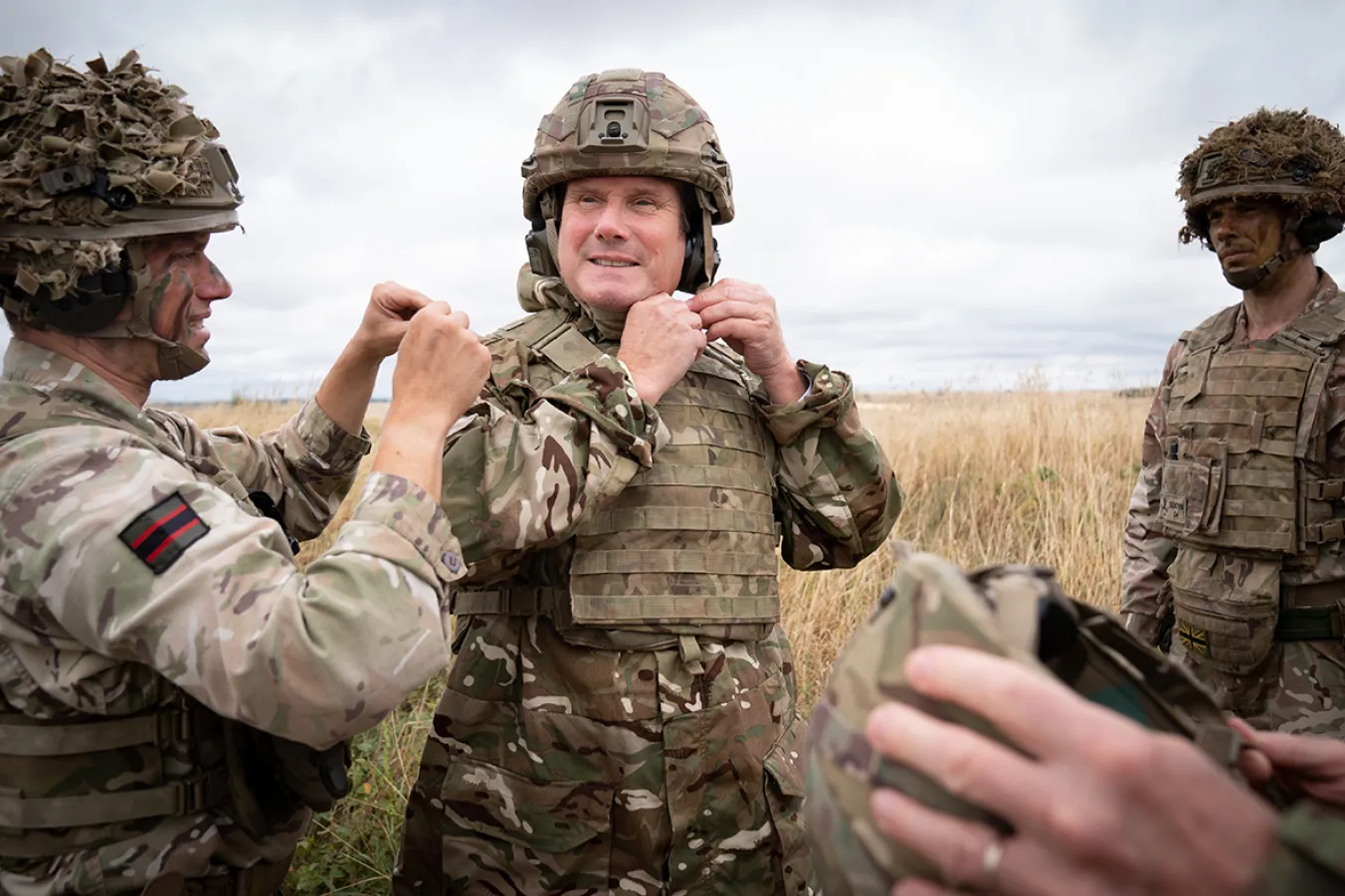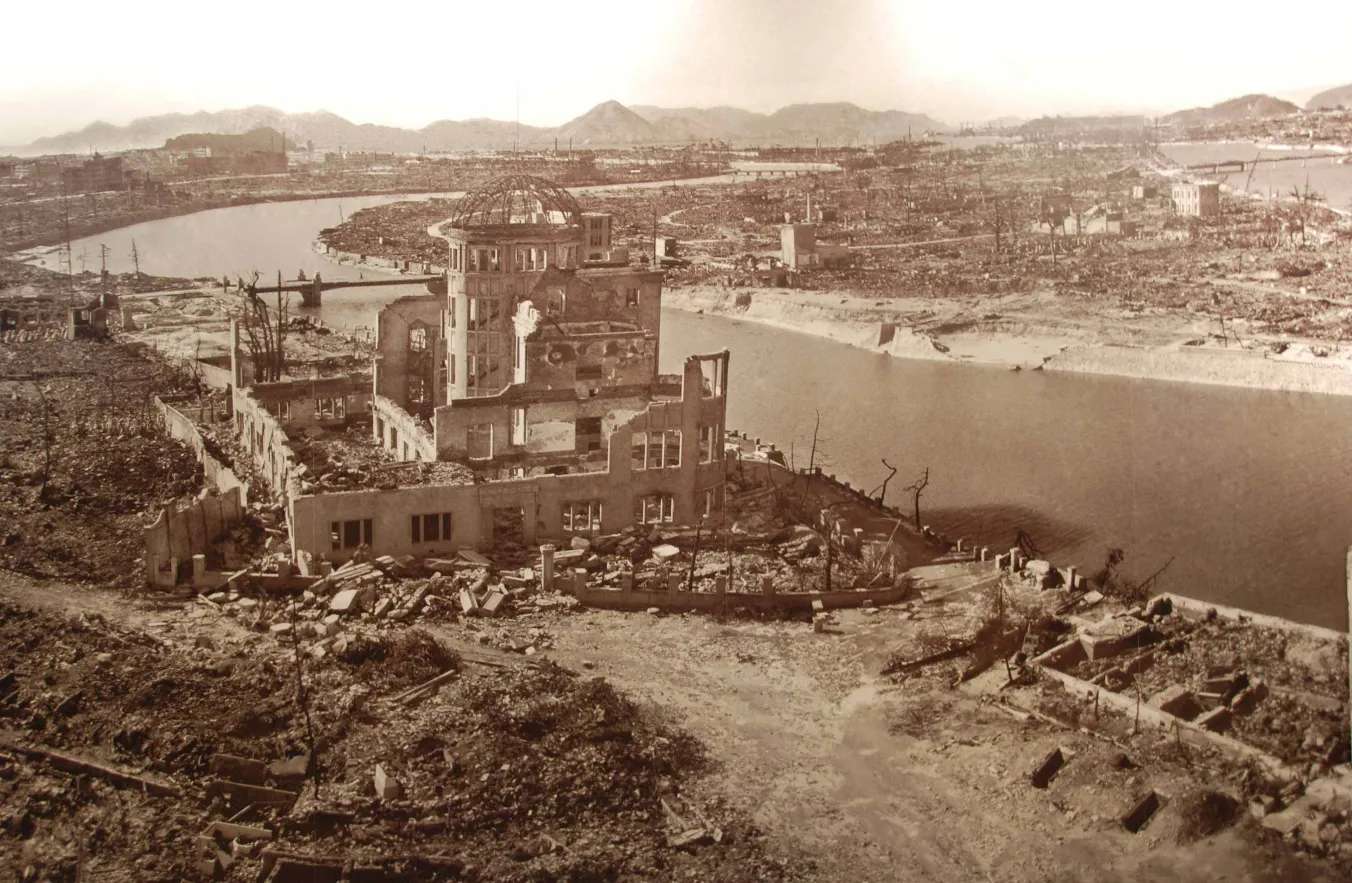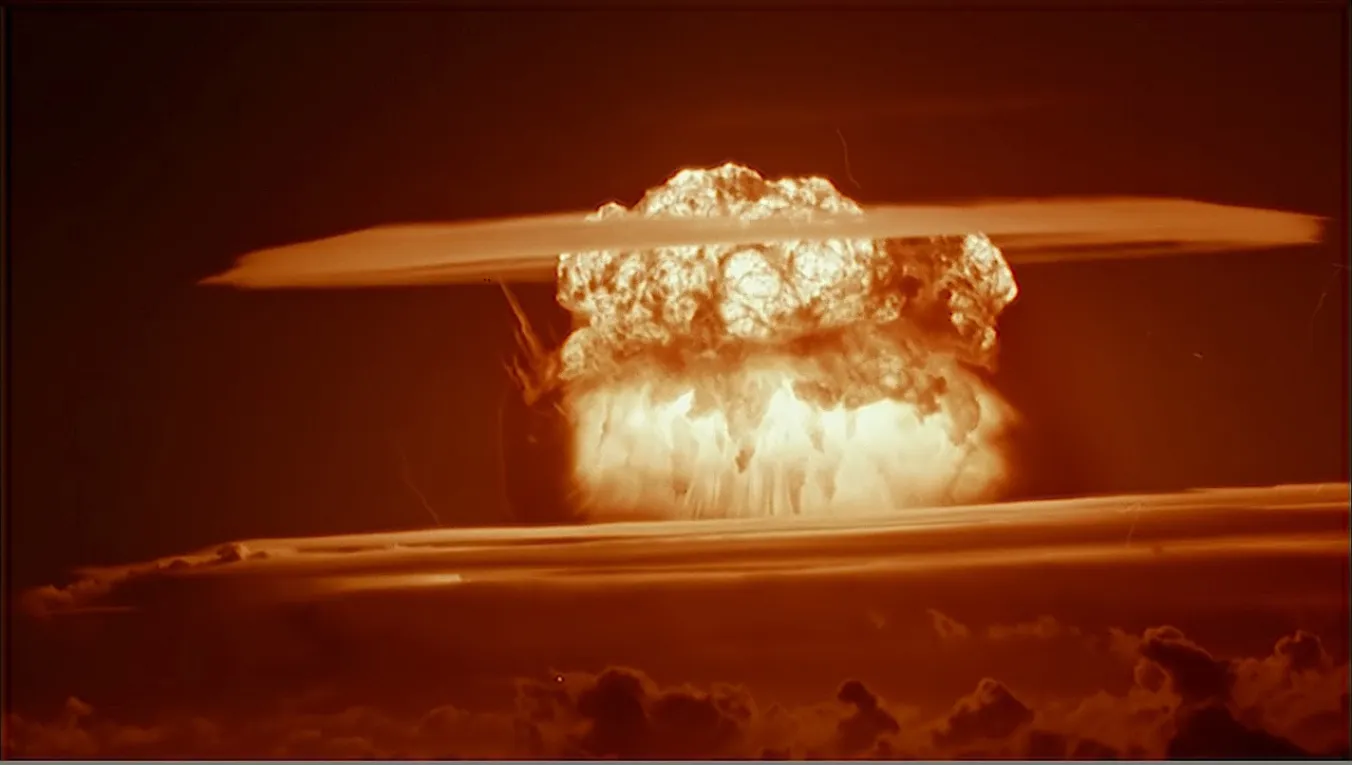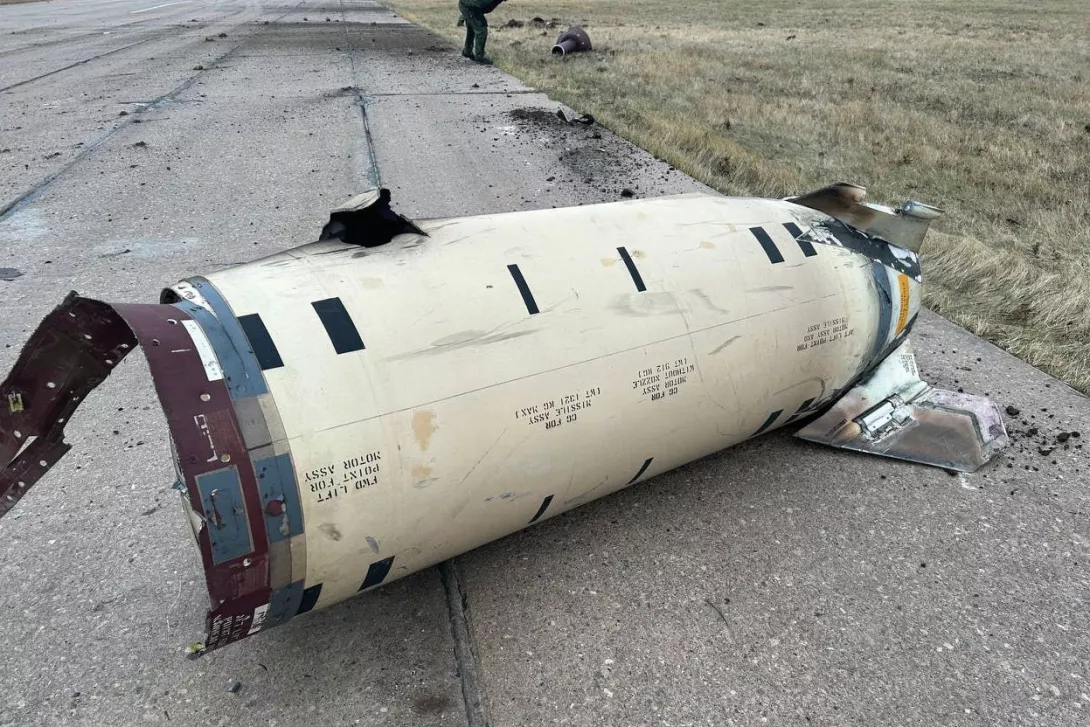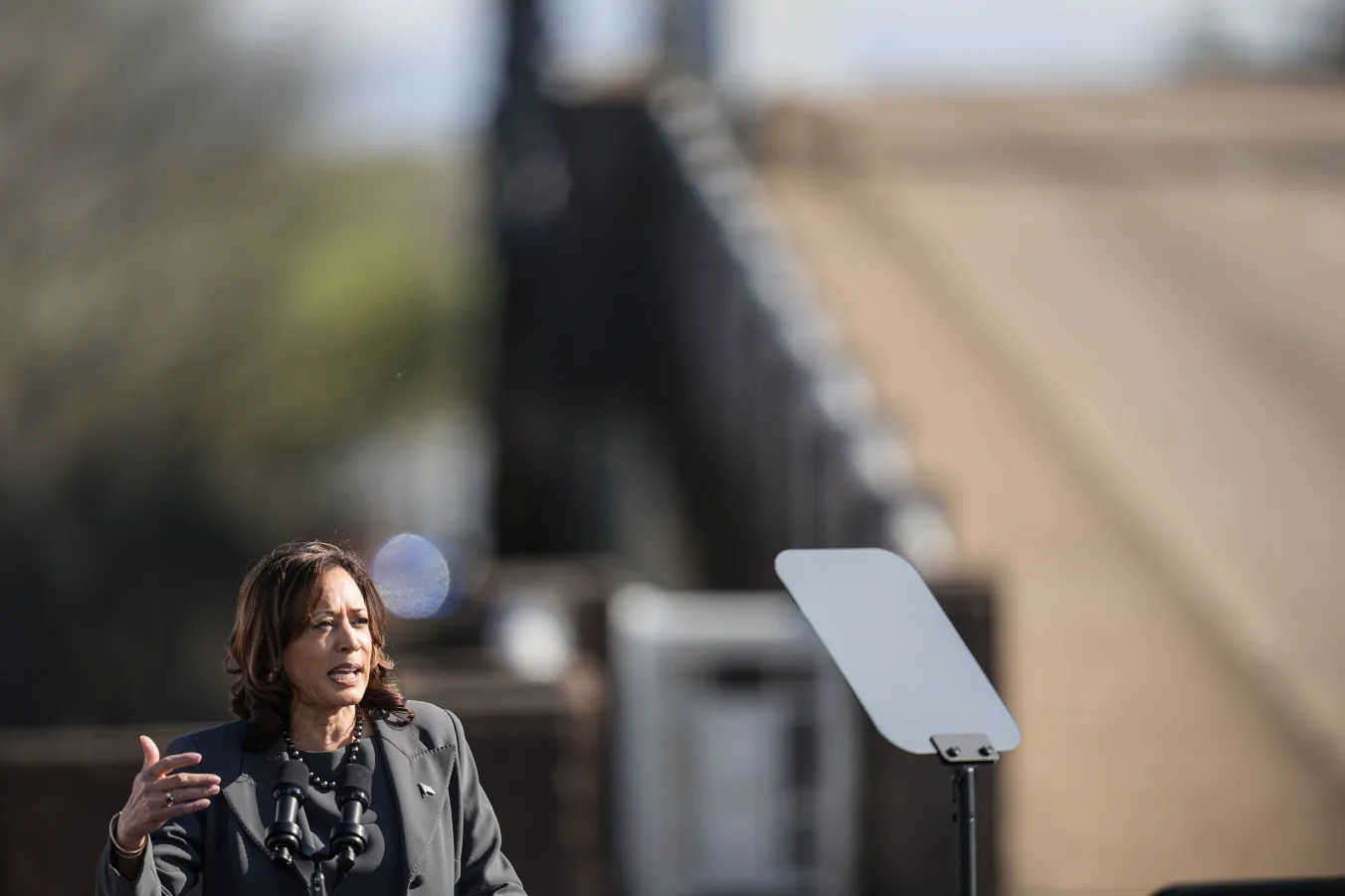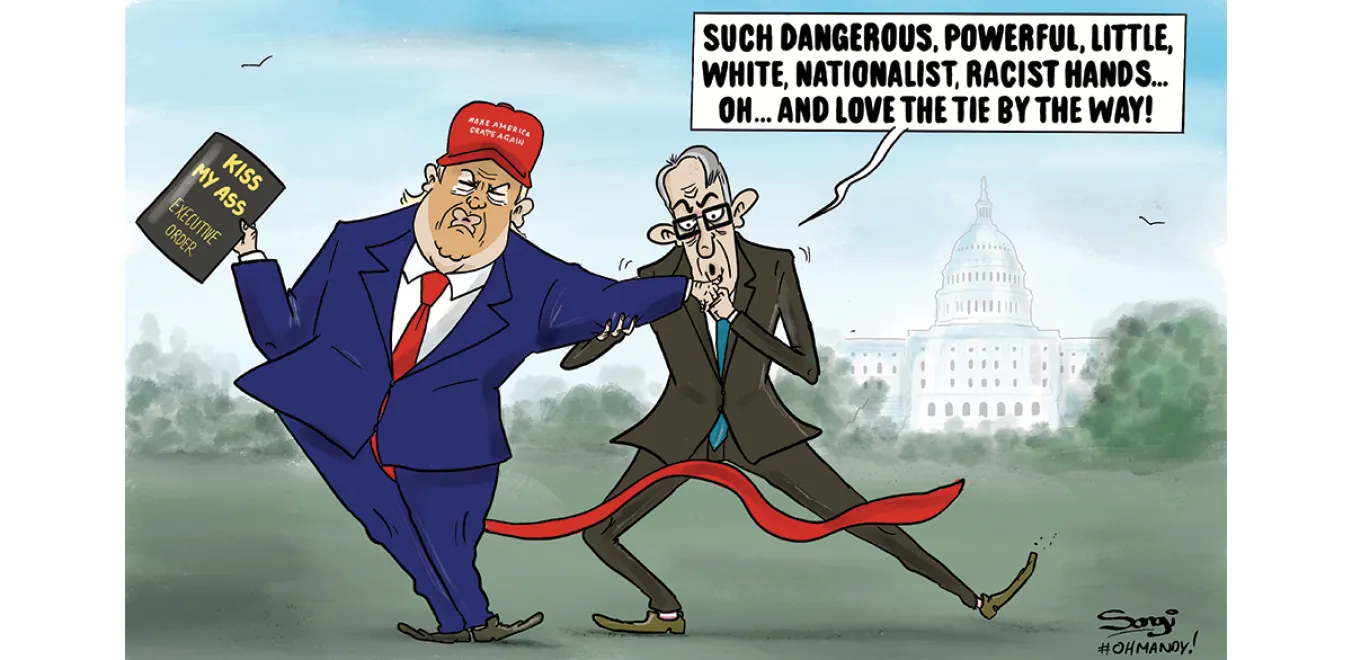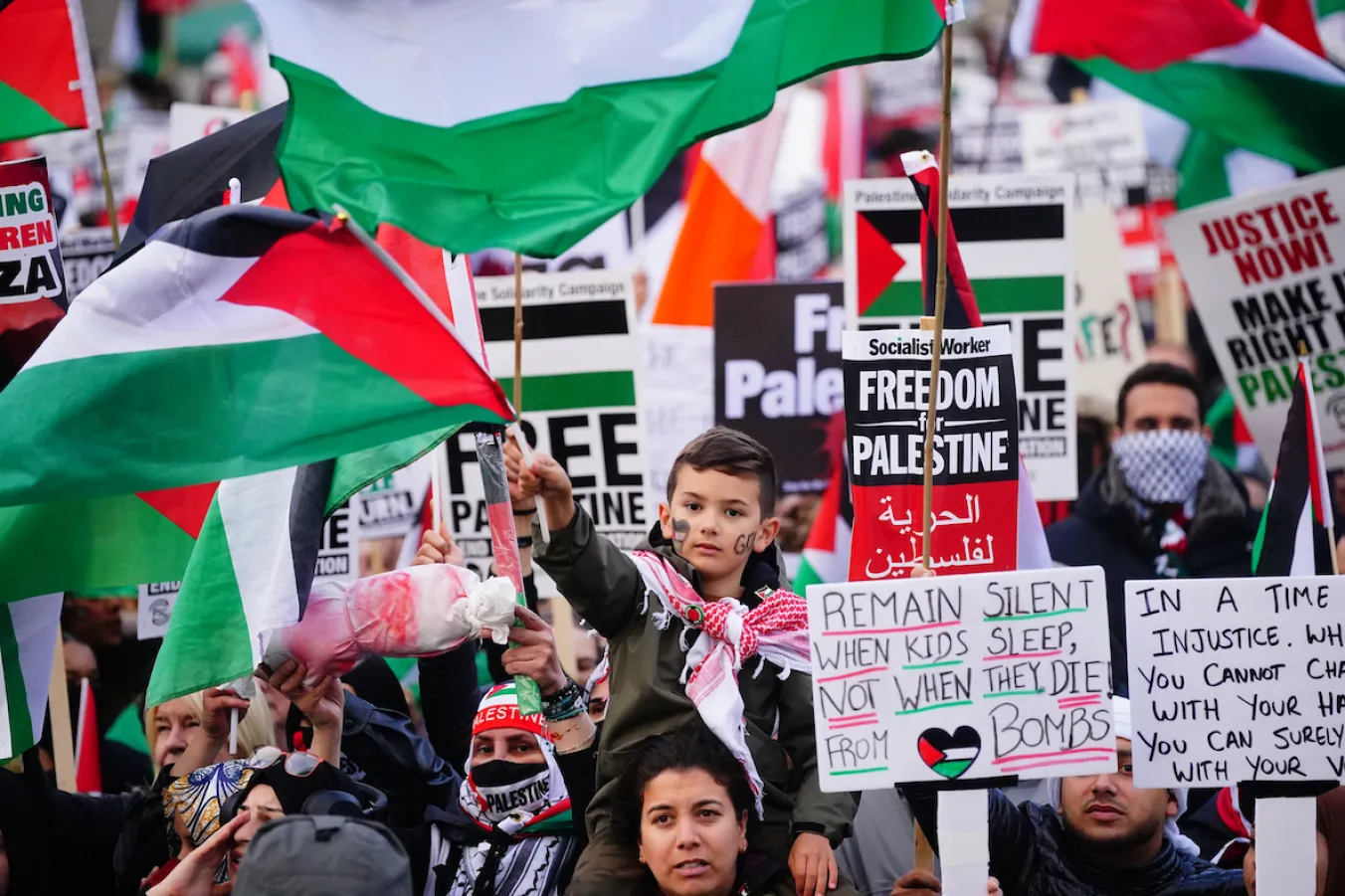
WHATEVER days of respite may be taking place, the truth is that the second Nakba is continuing. Any relief from the killing is welcome, but in a few days, if there’s no permanent ceasefire the slaughter will start again.
Thousands more will be killed, more war crimes committed, and more unbearable human tragedy take place. Small wonder that hundreds of thousands here in Britain are marching, calling for a ceasefire, for a just peace for Palestine. That millions are marching around the world for the Palestinian cause.
The long struggle of the Palestinian people for their national rights and sovereignty, and Israel’s ongoing massacre in Gaza, have generated a new global movement. In many countries this is having a profound impact on domestic politics; in Britain it has sent shock waves through the establishment, bringing significant government changes.
It has also had a massive impact on the Labour Party, which is facing huge opposition from within its own ranks owing to its refusal to call for a ceasefire. The former home secretary attempted to ban the ceasefire march on November 11, attacking the police and appealing to the far right to mobilise against the demonstration. This clearly revealed the divisions within the state and establishment, exacerbated by the scale of the developing movement.
The result of this conflict between the movement and the most extreme-right section of the state was a march of close to a million, and the sacking of the home secretary.
Worldwide protests are already on a mass scale, crossing all continents; from the US to Latin America, from Africa to Europe, to Asia and beyond — millions are mobilising. Even in countries like Germany and France where attempts have been made to ban pro-Palestinian demonstrations, tens of thousands have taken to the streets.
In the Middle East, there have been enormous demonstrations, the scale of which has not been seen since the Arab Spring. This is likely to have a wide political impact on those societies.
One of the most significant international developments has been the response of trade unionists globally to the appeal from Palestinian trade unions — to stop the Israeli war machine, blocking arms transports and building related forms of solidarity action.
Workers directly involved in the manufacture and transport of weapons have taken action to block shipments, while supportive trade unionists have also taken action at production and transport sites.
The coming together of workers with the wider movement has resulted in significant developments: among many examples — at the ports of Barcelona, Naples and Genoa, of Oakland and Melbourne; Indian trade unions have called for a refusal to handle Israeli cargo; in Britain, trade unionists have blocked arms factories exporting to Israel.
This part of the movement is expanding. And that is why our marches have come under such enormous and sustained attack from the establishment. We stand as part of a global movement, and we represent the overwhelming majority of the British population.
The challenge for us is clear: to understand the dynamics at play here; to recognise that there is a split in the ruling class, as there was during the Iraq war; that we must work broadly with allies across the board; we must welcome new forces and forms of action and protest into the movement; after all, we represent humanity in all its diversity.
And we must be united to face this challenge. Because together we do have power. Together, through our mobilisations, we can force change on our government.
Together with millions across the world, in a global movement that represents the overwhelming majority of humanity, we will bring this catastrophe to an end.
To do that effectively, we need to be organised globally. It’s one thing to share the same goal and another to work together and co-ordinate together — to realise the power of people acting and organising collectively. Together, we are finding our power, we are building our movement.
And in Britain, our power is this: that we will never vote for a politician who has not called for a ceasefire. That is now a powerful rallying cry of this movement: no ceasefire — no vote! We must make that power count at the ballot box — and bring political change.
Politicians are supposed to represent us; let’s make sure we have politicians that do — there can be no coming back from failing to support a ceasefire. Each and every one of us on these marches, on local actions, lobbying our MPs, have stood up to our criminal government — that tried to ban us and unleash far-right hatred upon us.
Two weeks ago we said: we will march. And we did. And we are marching again today, and we will continue to march. Because we will never betray the Palestinians.
Each of us will do everything we can: to end this slaughter and this injustice. And together we will march until Palestine is free.
Support the Campaign for Nuclear Disarmament at www.cnduk.org.
